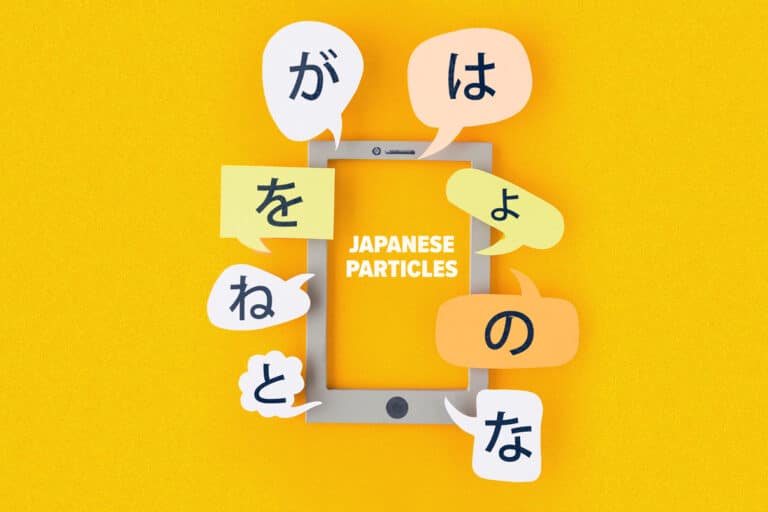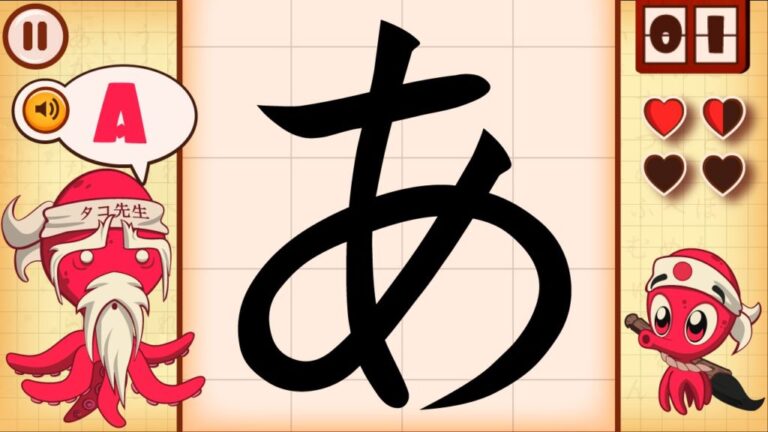60 Professions in Japanese and How to Discuss Careers

What do you do for a living? Knowing how to answer this question in Japanese is a key step toward fluency, especially if you’re interested in the business side of Japanese.
Whether you work in an office or somewhere more glamorous, this blog post has all the vocabulary words you may need to discuss your career.
Download: This blog post is available as a convenient and portable PDF that you can take anywhere. Click here to get a copy. (Download)
Common Professions in Japanese
Find your profession (or dream profession) in the list below and get talking about your career!
| Japanese | Romaji | English Translation |
|---|---|---|
| 俳優 | Haiyū | Actor |
| 建築家 | Kenchikuka | Architect |
| アーティスト | Ātisuto | Artist |
| 銀行員 | Ginkōin | Banker |
| 美容師 | Biyōshi | Beautician |
| 料理人 | Ryōrinin | Chef |
| 化学者 | Kagakusha | Chemist |
| 会社員 | Kaishain | Company Employee |
| 建設労働者 | Kensetsu Rōdōsha | Construction Worker |
| 化粧品販売員 | Keshōhin Hanbaīin | Cosmetic Salesperson |
| カウンセラー | Kaunserā | Counselor |
| サイバーセキュリティエキスパート | Saibā Sekyuriti Ekisupāto | Cybersecurity Expert |
| 舞踏家 | Butōka | Dancer |
| データサイエンティスト | Dēta Saientisuto | Data Scientist |
| デザイナー | Dezainā | Designer |
| 医者 | Isha | Doctor |
| 電気技師 | Denki Gishi | Electrician |
| エンジニア | Enjinia | Engineer |
| 芸能人 | Geinōjin | Entertainer/Celebrity |
| 農夫 | Nōfu | Farmer |
| 映画監督 | Eiga Kantoku | Film Director |
| フライトアテンダント | Furaito Atendanto | Flight Attendant |
| フリーライター | Furī Raitā | Freelance Writer |
| 園芸家 | Engeika | Gardener |
| グラフィックデザイナー | Gurafikku Dezainā | Graphic Designer |
| 人事担当者 | Jinji Tantōsha | Human Resources Specialist |
| イラストレーター | Irasutorētā | Illustrator |
| ジャーナリスト | Jānarisuto | Journalist |
| 弁護士 | Bengoshi | Lawyer |
| 音楽家 | Ongakuka | Musician |
| 看護師 | Kangoshi | Nurse |
| 看護助手 | Kangoshi Jyoshu | Nursing Assistant |
| 栄養士 | Eiyōshi | Nutritionist |
| 牧師 | Bokushi | Pastor |
| パティシエ | Patishie | Pastry Chef |
| 写真家 | Shashinka | Photographer |
| 飛行士 | Hikōshi | Pilot (Airplane) |
| 警察官 | Keisatsukan | Police Officer |
| 看守 | Kanshu | Prison Guard |
| プログラマー | Puroguramā | Programmer |
| 研究者 | Kenkyūsha | Researcher |
| 研修医 | Kenshū I | Resident Physician |
| 営業マネージャー | Eigyō Manējā | Sales Manager |
| 営業マン | Eigyōman | Salesperson |
| 美容師助手 | Biyōshi Jyoshu | Salon Assistant |
| 科学ジャーナリスト | Kagaku Jānarisuto | Science Journalist |
| 科学者 | Kagakusha | Scientist |
| 秘書 | Hisho | Secretary |
| サーバー管理者 | Sābā Kanrisha | Server Administrator |
| 歌手 | Kashu | Singer |
| ソーシャルメディアマネージャー | Sōsharu Media Manējā | Social Media Manager |
| ソフトウェア開発者 | Sofutowea Kaihatsusha | Software Developer |
| 舞台俳優 | Butai Haiyū | Stage Actor |
| 学生 | Gakusei | Student |
| サーフィンインストラクター | Sāfin Insutorakutā | Surfing Instructor |
| 先生 | Sensei | Teacher |
| 動物看護師 | Dōbutsu Kangoshi | Veterinary Nurse |
| ウェイトレス | Weitoresu | Waitress |
| 作家 | Sakka | Writer/Author |
Can’t find your profession on this list? Not sure how to use these words in actual conversation? A program like FluentU can help.
FluentU takes authentic videos—like music videos, movie trailers, news and inspiring talks—and turns them into personalized language learning lessons.
You can try FluentU for free for 2 weeks. Check out the website or download the iOS app or Android app.
P.S. Click here to take advantage of our current sale! (Expires at the end of this month.)

How to Talk About Professions in Japanese
If you want to talk about your job in Japanese, it’s important to remember cultural etiquette.
First and foremost, be polite! Use the correct honorifics when addressing someone in a professional setting, or even discussing someone of higher status at your work.
It’s also important to keep in mind that certain professions may carry specific expectations or stereotypes. For instance, businessmen and office workers (known in Japanese as “Salarymen”) are often depicted as overworked and dedicated to their jobs, sacrificing their personal life for work. Meanwhile, artists are often perceived as eccentric and solitary individuals who may struggle financially, despite the popularity of their work.
Inquiries about professions are often approached indirectly and modesty is valued. This means that even if someone is award-winning or holds a prestigious position in their field, they’ll tend to downplay their achievements.
Sentence structures for discussing work
When discussing professions in Japanese, it’s essential to understand common sentence structures and expressions.
You can state your profession using this pattern: “[Noun] です.” For example:
医者です。 (Isha desu.) — I am a doctor.
教師です。 (Kyōshi desu.) — I am a teacher.
Here are a few other ways you could phrase things:
__は私の職業です。 (Kore wa watashi no shokugyō desu.) — _____ is my occupation.
私は__として働いています。 (Watashi wa ____ to shite hataraiteimasu.) — I work as ____.
私は__関連の仕事に従事しています。 (Watashi wa IT kanren no shigoto ni jūjishiteimasu.) — I am engaged in _____-related work.
When inquiring about someone’s profession, you can use phrases like these:
あなたは何の仕事をしていますか? (Anata wa nan no shigoto o shiteimasu ka?) — What is your job?
あなたの職業は何ですか?
(Anata no shokugyō wa nan desu ka?) — What is your occupation?
Responding to Inquiries:
Dreaming up a future career? Check out some examples of how to talk about future plans:
来年、経済分野でのキャリアを築きたいです。 (Rainen, keizai bunya de no kyaria o kizukitai desu.) — Next year, I want to build a career in the field of economics.
将来は医者になりたいです。 (Shōrai wa isha ni naritai desu.) — In the future, I want to become a doctor.
大学を卒業した後、研究者としてのキャリアを追求したいです。 (Daigaku o sotsugyō shita ato, kenkyūsha toshite no kyaria o tsuikyūshitai desu.) — After graduating from university, I want to pursue a career as a researcher.
Remember to use appropriate honorific language and adjust your speech level based on the formality of the conversation.
Key vocabulary words related to jobs
Here are some crucial Japanese words related to jobs and the working sector.
| Japanese | Romaji | English |
|---|---|---|
| 仕事に応募する | Shigoto ni ōbō suru | Apply for a job |
| キャリア | Kyaria | Career |
| 仕事仲間 | Shigoto nakama | Colleague |
| 雇用 | Koyō | Employment |
| 雇用契約 | Koyō keiyaku | Employment contract |
| 雇用保険 | Koyō hoken | Employment insurance |
| フルタイム | Furutaimu | Full-time |
| 面接 | Mensetsu | Interview |
| 面接官 | Mensetsu-kan | Interviewer |
| 仕事 | Shigoto | Job |
| 仕事の申し込み | Shigoto no mōshikomi | Job application |
| 就職 | Shūshoku | Job hunting |
| 仕事の達成感 | Shigoto no tasseikan | Job satisfaction |
| 職業 | Shokugyō | Occupation |
| オフィス | Ofisu | Office |
| パートタイムの仕事 | Pātotaimu no shigoto | Part-time job |
| アルバイト | Arubaito | Part-time job |
| 勤務地 | Kinmuchi | Place of work |
| 昇進 | Shōshin | Promotion |
| 仕事を辞める | Shigoto o yameru | Quit a job |
| 履歴書 | Rirekisho | Resume/CV |
| 退職 | Taishoku | Retirement |
| 給与 | Kyūyo | Salary |
| 給与交渉 | Kyūyo kōshō | Salary negotiation |
| 給料 | Kyūryō | Wage |
| 職場 | Shokuba | Workplace |
| 労働者 | Rōdōsha | Worker |
| 勤務時間 | Kinmu jikan | Working hours |
Work Culture and Etiquette
Japan has a unique work culture. If you’re planning to work in the country, keep in mind some basic Japanese rules of professional etiquette:
- Teamwork and Collaboration: Group harmony is highly valued in the Japanese workforce and individuals often prioritize the collective goals of the team over personal achievements. Team members are expected to work closely together, share responsibilities and contribute to a unified effort. Decision-making in Japanese organizations often involves seeking consensus.
- Respect: Respect for authority and hierarchy is deeply ingrained in Japanese work culture. There’s a clear chain of command and individuals show deference to those in higher positions. Politeness and formal language, especially when addressing superiors, are essential.
- Punctuality: Arriving on time for meetings and work-related events is considered a sign of respect and reliability while lateness is frowned upon. Time is often structured efficiently in the workplace to ensure smooth operations.
- Long Working Hours: Japanese work culture is often associated with long working hours, and the concept of 過労死 (karōshi) — death by overwork, has gained attention. While there are efforts to address this issue, the dedication to one’s job and putting in extra hours, known as サービス残業 (Sābisu Zangyō) — service overtime, is still prevalent.
- Business Cards: The exchange of business cards, or 名刺 (meishi), is a ritual in Japanese business culture. When meeting someone for the first time, it’s customary to offer and receive business cards with both hands. Take a moment to study the card before carefully storing it, as casually putting it away may be seen as disrespectful.
- Work Dress Code: Maintaining a neat and orderly workspace is important in Japanese offices. Professional attire is expected, and individuals pay attention to their appearance.
Understanding and adhering to these cultural norms is crucial for success in the Japanese workplace.
Respect, harmony and effective communication are at the core of Japanese work culture, shaping the professional relationships and interactions within the business environment.
Now you’re ready to discuss your profession in Japanese, from the vocab to the correct sentence structures!
And One More Thing...
If you love learning Japanese with authentic materials, then I should also tell you more about FluentU.
FluentU naturally and gradually eases you into learning Japanese language and culture. You'll learn real Japanese as it's spoken in real life.
FluentU has a broad range of contemporary videos as you'll see below:

FluentU makes these native Japanese videos approachable through interactive transcripts. Tap on any word to look it up instantly.

All definitions have multiple examples, and they're written for Japanese learners like you. Tap to add words you'd like to review to a vocab list.

And FluentU has a learn mode which turns every video into a language learning lesson. You can always swipe left or right to see more examples.

The best part? FluentU keeps track of your vocabulary, and gives you extra practice with difficult words. It'll even remind you when it’s time to review what you’ve learned. You'll have a 100% personalized experience.
Start using the FluentU website on your computer or tablet or, better yet, download the FluentU app from the iTunes or Google Play store. Click here to take advantage of our current sale! (Expires at the end of this month.)







